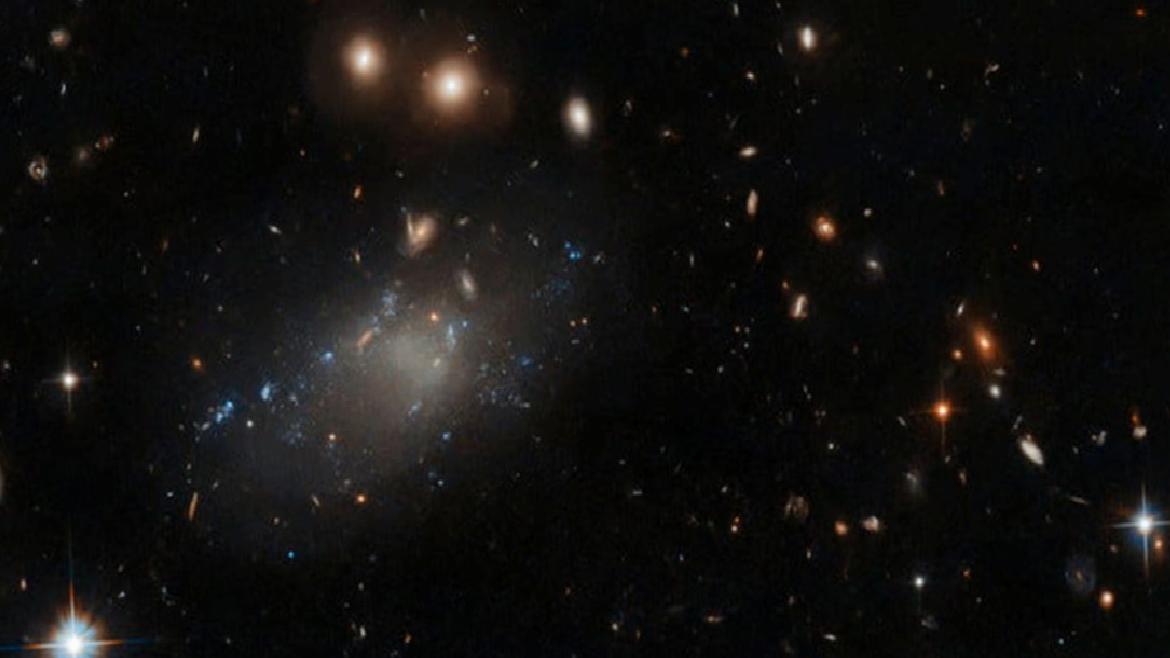Sharing the depths of space with us since its launch in 1990, the Hubble Space Telescope continues to produce new and impressive images. In the shared image, the galaxy called GAMA 526784 is located in the center of the image as a large cluster of light. Located in the constellation Hydra, the galaxy is about four billion light-years away. This galaxy has broken a record with its star density.
“The fluffiest” galaxy!
The shared image was announced as part of the Hubble project to learn more about ultra-disperse galaxies. This galaxy, which is determined to be as large as 60,000 light-years, is approximately the same size as the Milky Way. Despite similar dimensions, the number of stars in this galaxy is only about 1 percent of that in the Milky Way. This makes GAMA 526784 “the fluffiest” galaxy.

How these galaxies, which are expected to separate from each other due to low star densities, survive is a big question mark. This is where dark matter comes into play. Researchers think that galaxies with high levels of dark matter can be protected in this way.
Hubble scientists used the following statements about the galaxy:
Ultra diffuse galaxies such as GAMA 526784 have some different features. For example, these galaxies may have very low or high amounts of dark matter, which is thought to make up the majority of the universe. Observations of ultra-diffuse galaxies have revealed that some have an almost complete lack of dark matter, while others are composed almost exclusively of dark matter. Another peculiarity of this class of galaxies is the unusual abundance of bright globular clusters not observed in other types of galaxies.
For ultra diffuse galaxies that contain almost no dark matter, a clear explanation has not been made yet. Researchers are still working to answer this question. So what do you think about dark matter and galaxies? You can share your views with us in the comments section or on the SDN Forum.